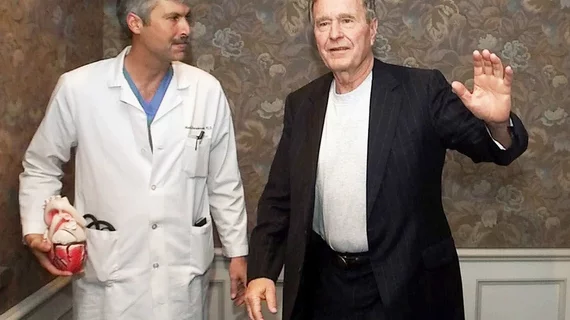Suspect in George H.W. Bush cardiologist shooting kills himself
Joseph James Pappas, the accused gunman in the shooting of former president George H.W. Bush’s cardiologist Mark Hausknecht, MD, shot himself in the head after being confronted by law enforcement officers who were attempting to arrest him in Houston. He was formally charged with the murder of Hausknecht on Thursday, August 2.
Pappas’ motive behind the shooting of Hausknecht was a two-decade long grudge stemming from his mother’s death on the operating table while under the care of Hausknecht.
Law enforcement found Pappas had collected detailed information on Hausknecht—including activities and routines at his job and home. They also found he had threatened to commit suicide to a family friend, sent the title to his vehicle and the deed for his home to a friend in Ohio, and cited having a terminal illness. Law enforcement found a will in his kitchen and three boxes of .22-caliber ammunition.
To read more, click the link below.

